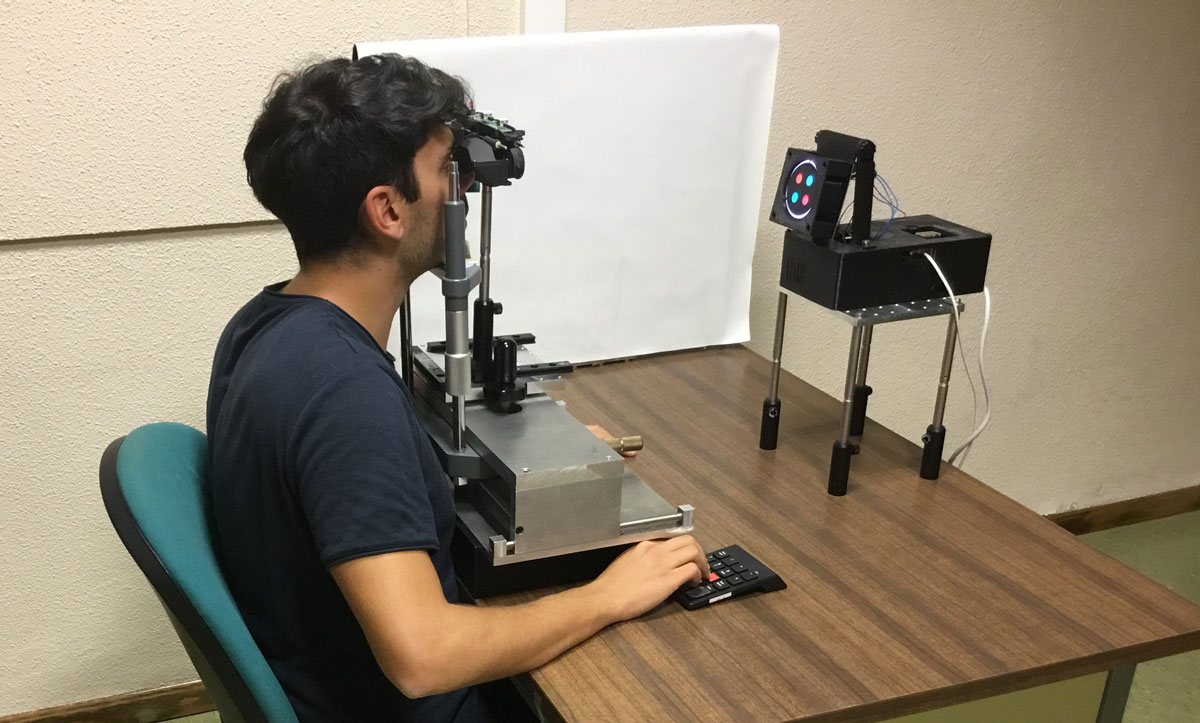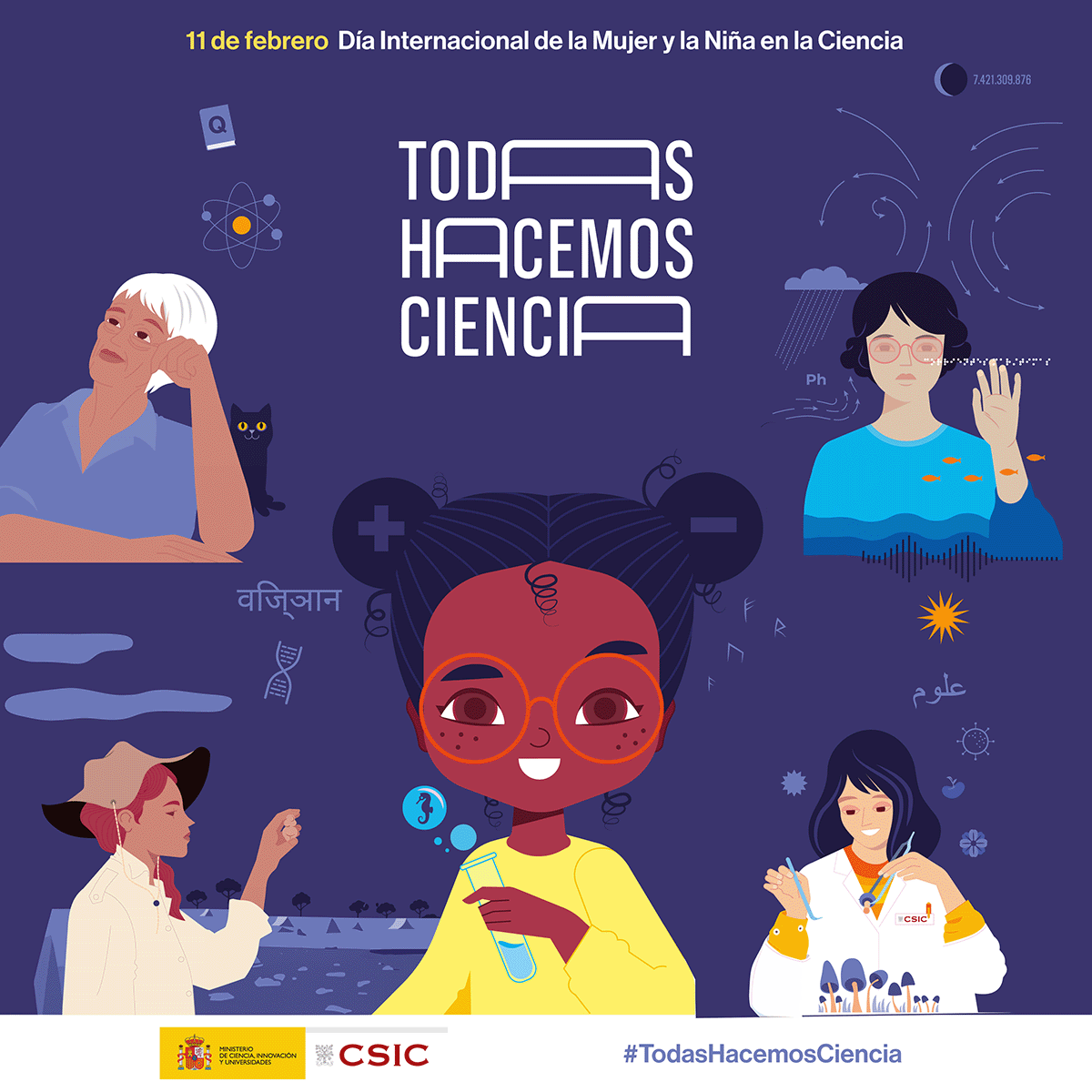Quick blur changes as a visual grading method
-
Chromatic blur flicker, induced by rapid changes in defocus, it appears to deactivate the accommodative response of the visual system, making the measurement of visual gradation more repetitive.
-
This study illustrates the possibility of using the chromatic flicker minimization task in the development of new methods for estimating an eye's prescription with the potential to provide rapid and accurate unsupervised subjective measurements.
Madrid / September 13, 2023
The study, published in the journal Biomedical Optics Express, takes advantage of the possibilities of adjustable lenses, an emerging technology that allows its optical power to be quickly changed in milliseconds. Twenty-five subjects participated in the experiment, where they viewed chromatic stimuli through these adjustable lenses to evaluate the subjects’ response to periodic changes in defocus.
Latest news

The results of the study have revealed that rapid and periodic changes in blur, with an amplitude of 0.25 diopters and a frequency of 15 Hz, generate flickering and chromatic distortions that vary depending on the overall level of blur. Subjects had to try to minimize flicker by adjusting the global blur by changing the diopters of the adjustable lenses. This new method has been named by researchers as Direct Subjective Refraction. This video explains the method. This process turned out to be easy and quick, lasting an average of just 38 seconds per repetition.
One of the most notable conclusions of the study is that defocus flicker deactivates the accommodative response of the visual system. In other words, the eye fails to focus correctly in the face of these rapid changes in defocus, allowing accurate measurements of refractive error to be carried out regardless of whether the subject is myopic or farsighted. This discovery has important clinical implications, as it could revolutionize methods of measuring ocular prescription, eliminating the need to use cycloplegic drugs that, although they block accommodation, can have unwanted side effects.
This study, in addition to potentially significantly improving the precision and efficiency of optometric and ophthalmological procedures in the future, opens the way for new research and development in the field of medical optics and the correction of refractive errors.
What problems does focusing cause when grading vision?
The problem of ocular accommodation during the vision evaluation process using the subjective refraction method represents problems for both patients and clinicians. Accommodation, which is the eye’s ability to focus on close objects, can interfere with and complicate the measurement of refractive error with the traditional method, known as subjective refraction. During subjective refraction, patients have to say how blurry or sharp they see while trying on different lenses to find the optimal combination that corrects their vision. However, due to the subjective nature of this task and factors such as the eye’s natural blurring and optical aberrations, responses can be ambiguous and difficult to interpret.
Traditional methods to eliminate the effect of accommodation, such as the use of cycloplegic drugs, may have unwanted side effects and increase measurement time and variability. Therefore, avoiding the problem of accommodation is crucial to improve the accuracy and efficiency of vision screening and move towards more comfortable and reliable methods for patients and professionals.
IO-CSIC Communication
cultura.io@io.cfmac.csic.es
Related news
The Institute of Optics joins the celebration of 11F
Full and equal access and participation of women and girls in science and technology Madrid / January 31, 2025In recent decades, the international...
The SureVision research project has been awarded a Caixa Impulse innovation project, worth €500,000
Madrid / October 15, 2024Our colleague Víctor Rodríguez has managed to get his project SureVision to receive a €500,000 grant from the Caixa Impulse...
Predoctoral contract offer at the Laboratory of Visual Optics and Biophotonics
Madrid / October 2, 2024The Visual Optics and Biophotonics Laboratory has just published a job offer for a 4-year predoctoral contract within the...




